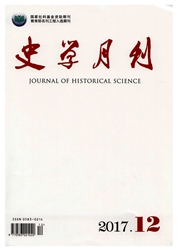

 中文摘要:
中文摘要:
1949年后,中国曾长期处于“继续革命”的氛围中,集体至上,精神第一,家庭观念、个人主义、物质享受均成为批判革除的对象。然而,贴近考察这一时期的个人生活史,不难发现,也许正因为国家大环境重“精神”轻物质,私人领域的交流反而可能更加“物质”;青年男女的婚恋过程,“匹配”的通常仍是各种各样的“条件”,而城市年轻夫妇的生育率已大为下降。无论物质生活的调剂还是婚姻问题的“解决”,家庭往往是人们可以调动的基本资源;在“家庭”的价值被否定、遭破坏多年之后,仍有一些家庭拥有非常强大的凝聚力,家庭成员互为可靠的物质后盾和坚强的精神支柱。但是,在一个高度政治化的年代,即使最亲密最有能力的家庭,所能腾挪的空间也是极其逼仄的。
 英文摘要:
英文摘要:
Under the circumstance of "Continuing Revolution" in post-1949 China, collectivism and ideologies that preferred mental power dominated the Chinese society, while notions that advocated family, individualism or material happiness became the targets for criticism. By closely examining the daily lives during this period, however, we can hardly miss this paradox, i. e. social interactions in the private sphere were actually more "materialistic", a possible backlash against China' s then social circumstances under which material demands were effectively suppressed. Meanwhile,a precondition for a marriage at that time was to meet all sorts of material "conditions", and the fertility rates among urban young couples was declining. Family still functioned as the basic resources reservoir for people to have their material demands met or have their marriage negotiations settled. Even though the values of "family" had been denied and discarded for so many years, some Chinese family still exhibited strong cohesion and family members continued to support each other both materially and mentally. Nevertheless, during that highly politicized period, even the most close-knit and resourceful family would find that there was little room for them to maneuver and adapt.
 同期刊论文项目
同期刊论文项目
 同项目期刊论文
同项目期刊论文
 期刊信息
期刊信息
